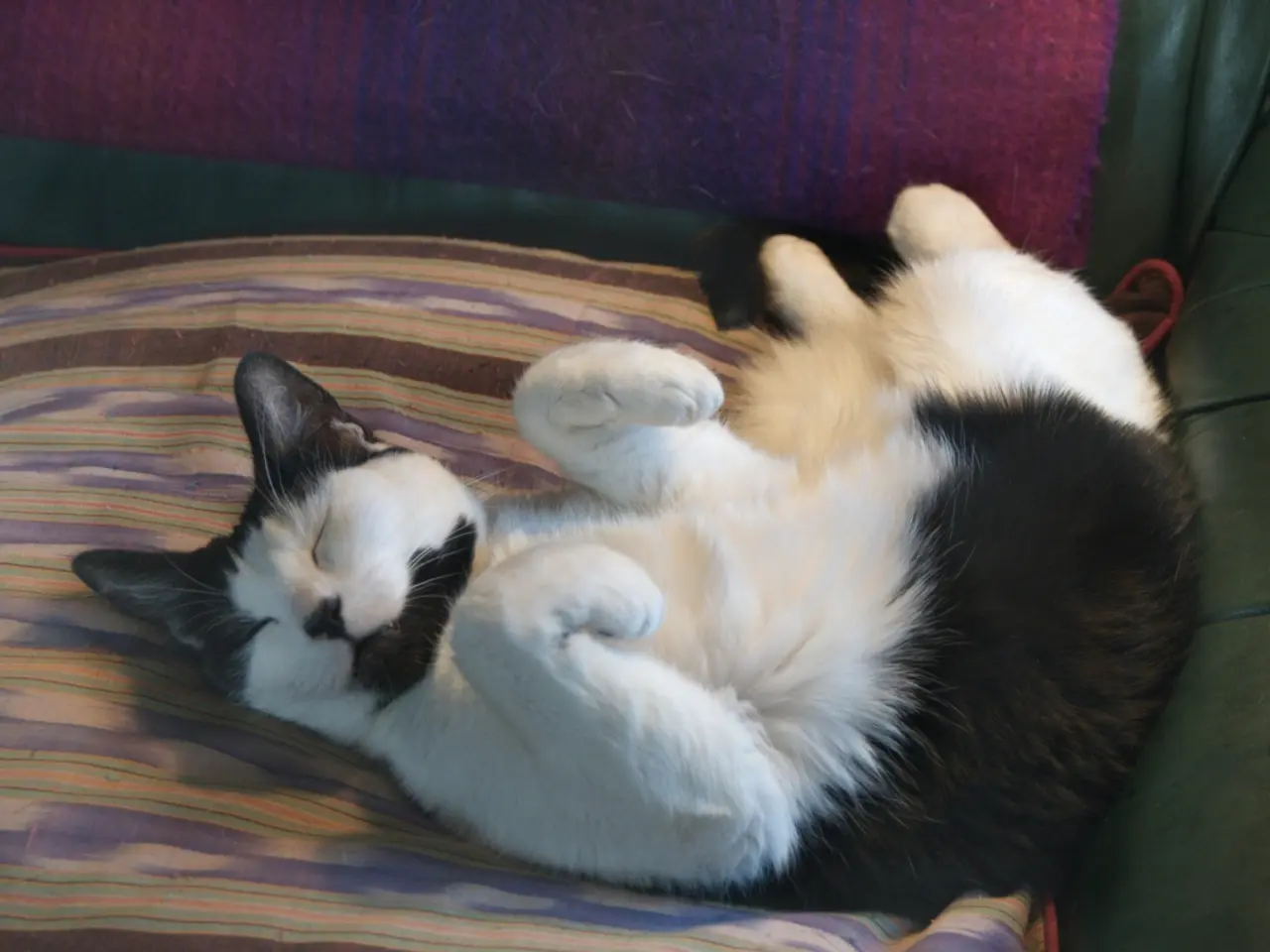Feline behavior: Understanding why cats ocassionally mouth blankets, with vet-provided insights into six typical causes and corresponding solutions.
Cats, known for their unique behaviors, often exhibit a peculiar habit called blanket sucking. This behavior, which involves a cat sucking on blankets or other soft materials, is more prevalent in certain breeds such as Siamese and Burmese, due to their genetic predisposition for strong attachment behaviors and heightened sensitivity to stress or anxiety.
This suckling on blankets is a common behavior in cats and serves as a self-soothing tool. However, it's essential to ensure that the cat isn't causing harm to itself by chewing and damaging the bedding. In most cases, blanket sucking is harmless, but excessive behavior could potentially lead to health issues such as vomiting or gastric upset.
Cats that were weaned too early may be more likely to suckle on items like blankets. To help manage this behavior, regular vet checks are important to ensure a cat is in top form and that no underlying health issues are developing that could be impacting their behavior.
Meeting a cat's environmental needs can also help reduce sucking behaviors. Providing cozy rest areas, plenty of toys, a scratch post, and appropriate litter trays can all contribute to a content cat. Stressors for cats can include moving their litter box, changing their feeding time, having guests stay over, or remodeling the house. Minimizing these stressors can help reduce blanket sucking, as well as ensuring the cat has quiet time and an area to escape from people or other pets.
Providing a cat with mental stimulation through play and a variety of toys can help reduce the risk of boredom and anxiety, keeping them occupied and less likely to resort to blanket sucking.
In some cases, blanket sucking can get additional attention from the cat's owner. This attention can reinforce the behavior, making it more likely to continue. To prevent this, it's important to avoid rewarding the behavior with attention and instead redirect the cat's focus to other activities.
Using a calming pheromone diffuser in a cat's environment can help reduce anxiety and stress, especially during specific events like fireworks, house renovations, or visitors. This can help reduce blanket sucking and other stress-related behaviors.
Suckling on blankets releases feel-good hormones in cats, which can be a carryover from their kittenhood. This comforting sensation can turn into a habit, making it difficult for the cat to stop. However, by understanding the reasons behind this behavior and taking steps to manage stress and provide mental stimulation, blanket sucking can be reduced or eliminated.
Lastly, to keep a cat safe, check their blankets regularly and remove them promptly if there are any signs of wear and tear. Pieces of blanket or long fibers/threads could cause problems if swallowed, potentially leading to vomiting, diarrhea, or serious damage to the bowels.
By understanding and addressing blanket sucking in cats, owners can help their feline friends lead happier, healthier lives.
Read also:
- Peptide YY (PYY): Exploring its Role in Appetite Suppression, Intestinal Health, and Cognitive Links
- Toddler Health: Rotavirus Signs, Origins, and Potential Complications
- Digestive issues and heart discomfort: Root causes and associated health conditions
- House Infernos: Deadly Hazards Surpassing the Flames








